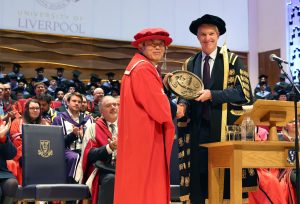Details
- Time: 16:00-17:00
- Date: Wednesday, 6 April 2022
- Venue: Zhumu online (please contact Tanjun.Liu@xjtlu.edu.cn for Zhumu details)
Abstract
It remains a mystery how infants can learn language with little effort and remarkable speed. To address this issue, psychological research methods have been used widely in the field of infant language acquisition. For these young learners(especially the preverbal infants)who are not able to give clear verbal responses about what they think or understand, these psychological methods enable us to investigate the processes and outcomes of their language learning through observing their behavior. In this talk, I introduce a number of psychological behavioral experiments taken from some important studies on infant phonetic and lexical acquisition. In addition, I present one of my own infant studies which employed such kind of behavioral experiments. The study indicated that phonetic exaggeration of lexical tones may facilitate infants’ recognition of similar sounding words in the middle of the second year of life.
Speaker
Luchang Wang is an Assistant Professor in the Department of Applied Linguistics. Her research interests broadly lie in infant/child language acquisition, psycholinguistics, phonetics, speech production and perception. Specifically, she has been doing research with regard to the following topics:
-Speech production: acoustic/experimental phonetics
-Psycholinguistics: how speech (especially phonetic information) is perceived and processed (mainly using behavioral methods with E-prime and eye-tracking)
-Infant/child language acquisition: their phonological development at early stages; infant/child-directed speech (to promote infant/child language development from the perspective of the language environment)







